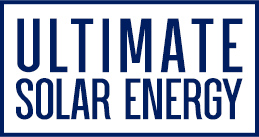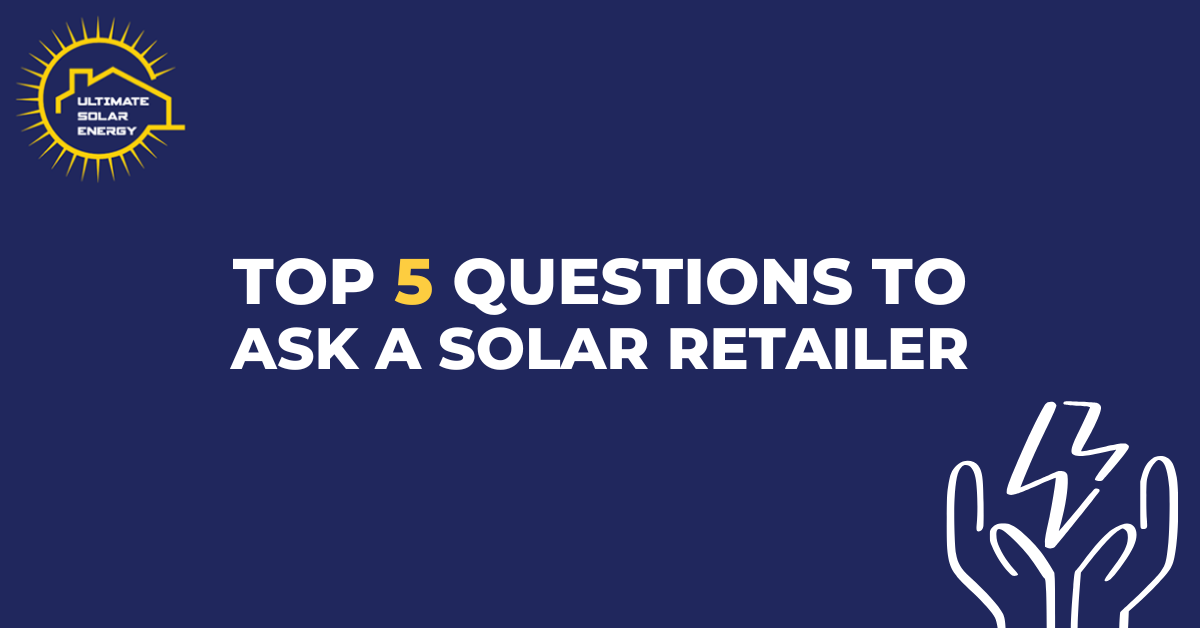Top 5 Questions to Ask a Solar Retailer
Top 5 Questions to Ask a Solar Retailer
In recent years, owing to technological advancements and eco-friendly power solutions, the solar industry has experienced significant growth, and the number of solar retailers to choose from has also increased. At this stage, new and existing solar consumers need to be aware of some factors before making an informed decision. So, we have compiled a list of some fundamental questions that every solar consumer should ask retailers to find the most suitable solar system for their home or business.

We appreciate solar consumers getting at least three quotes from CEC clean energy council approved solar retailers. It will allow them to compare various aspects such as solar product offerings, solar PV system size, solar panel quality, and solar panel retail price.
Top Five Questions to Ask
1. Solar PV System Type, Brand, And Origin of Manufacturing
When you contact any solar retailer after getting your power requirements, they will recommend some solar systems, solar inverters, and solar batteries. Ask about the brand, type, and country of origin. Also, get detailed specifications of their recommended solar panels, inverters, and batteries. All information will help users to understand the reasons behind their recommendation and selection, enabling them to make informed decisions.
If solar users are looking for aesthetics, they should inquire whether the installer can provide images of previous installations featuring the recommended panels.
Price comparison is another vital aspect, but it is essential to remember that a higher-quality system may come with a higher initial cost. However, it is likely to offer better long-term performance and benefits. So, inquire about how the quality of the suggested solar system compares to others available in the market.
Besides pricing and quality, consider various factors like build quality, frame type, color, dimensions, and weight of the panels. These factors can impact the overall efficiency and suitability of the system for specific properties.
2. Grid Connection Setup
Many solar customers opt for a mains grid-connected system due to its reliability. The particular system allows solar consumers’ homes to access electricity from the grid during times when the solar panels aren’t generating sufficient power.
Before proceeding with the installation, it’s essential to obtain approval to connect your solar system to the grid. The Clean Energy Council advises inquiring with your solar retailer about whether they can handle the grid-connection application on your behalf, the associated costs, and an estimated timeframe for receiving approval.
3. Placement and Size of the Solar PV System
Generally, solar installers perform a site assessment to identify the most suitable size and placement of the solar panel system. They consider factors like consumer energy requirements, the angle and orientation of their roof, and any potential shading concerns.
During the site inspection, while selecting the optimal locations for solar panels and inverter placement, the solar installer can also assess the condition of the electrical switchboard. However, site inspections may not always be mandatory, such as when purchasing a smaller system for a recently constructed home with modern switchboards and no shading issues.
4. Warranty Periods and Other Details
A reputable solar retailer will furnish its customers with transparent details about warranties, encompassing all the different components within the solar power system. CEC-approved solar retailers provide an installation warranty that covers any potential issues arising from the installation process. It is essential to ask about their warranty claim process and whether the manufacturers have a contact number in Australia for handling problems.
Most solar panels nowadays come with a materials warranty of at least 10 years and a power warranty of 25 years. If your chosen solar retailer fails to provide clear information about warranties, it might indicate that they are not the right fit for you. So, it is better to seek more information about solar panels and installation warranties.
Approved retailers are obligated to have policies and procedures in place for addressing faults, problems, and other issues. Legal protections are in place for customers in case solar manufacturers, retailers, or installers fail to deliver as promised.
5. Financing Options
Some solar retailers may offer their customers the option to pay for the solar installation through an installment plan, which can help reduce the initial upfront costs. However, before accepting any financing, it is essential to conduct thorough research and consider asking the following questions:
-
-
- Total cost difference
- Interest rates
- Any hidden charges or additional fees
- Specific payment terms or conditions
- Penalties or fees charged for failing to meet the payment terms and conditions
- Any exit fees if solar consumers decide to pay off the financing early
- What happens if you encounter difficulties in making a payment?
- How will any potential issues with faulty panels be handled?
-
Also, to further reduce the installation costs, eligible residents of Victoria may have the option to apply for interest-free loans of up to $1,400 through Solar Victoria. These loans can be applied for as part of the rebate application process.
Final Thoughts
Solar energy is one of the best sustainable solutions, but before going solar, it is essential to do exhaustive research to make the right decision.
At Ultimate Solar Energy, we make your decision-making process so simple. We design customized solutions based on your requirements, using only the most premium products.
Get a Free Quote now!

